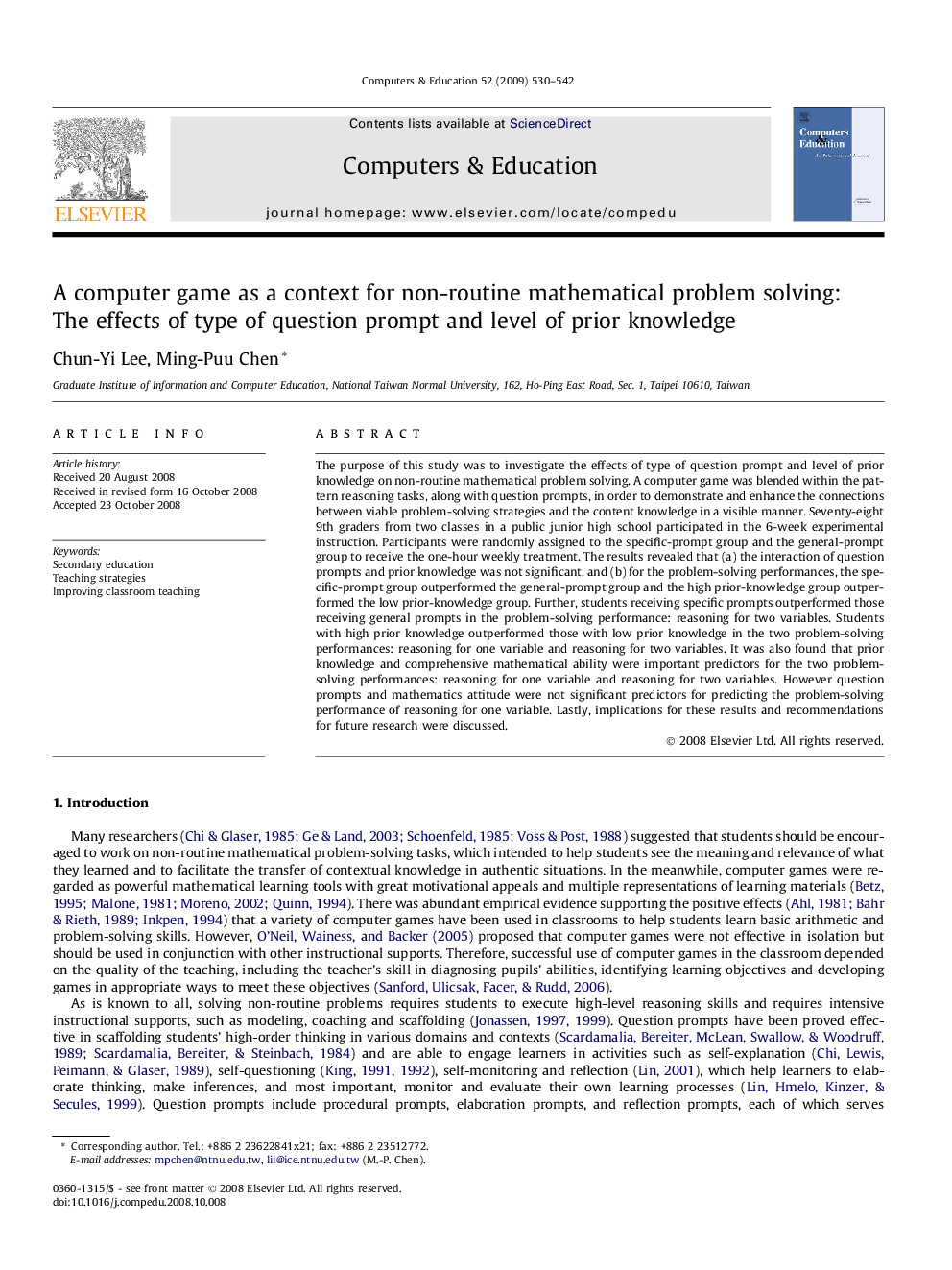| کد مقاله | کد نشریه | سال انتشار | مقاله انگلیسی | نسخه تمام متن |
|---|---|---|---|---|
| 349435 | 618224 | 2009 | 13 صفحه PDF | دانلود رایگان |

The purpose of this study was to investigate the effects of type of question prompt and level of prior knowledge on non-routine mathematical problem solving. A computer game was blended within the pattern reasoning tasks, along with question prompts, in order to demonstrate and enhance the connections between viable problem-solving strategies and the content knowledge in a visible manner. Seventy-eight 9th graders from two classes in a public junior high school participated in the 6-week experimental instruction. Participants were randomly assigned to the specific-prompt group and the general-prompt group to receive the one-hour weekly treatment. The results revealed that (a) the interaction of question prompts and prior knowledge was not significant, and (b) for the problem-solving performances, the specific-prompt group outperformed the general-prompt group and the high prior-knowledge group outperformed the low prior-knowledge group. Further, students receiving specific prompts outperformed those receiving general prompts in the problem-solving performance: reasoning for two variables. Students with high prior knowledge outperformed those with low prior knowledge in the two problem-solving performances: reasoning for one variable and reasoning for two variables. It was also found that prior knowledge and comprehensive mathematical ability were important predictors for the two problem-solving performances: reasoning for one variable and reasoning for two variables. However question prompts and mathematics attitude were not significant predictors for predicting the problem-solving performance of reasoning for one variable. Lastly, implications for these results and recommendations for future research were discussed.
Journal: Computers & Education - Volume 52, Issue 3, April 2009, Pages 530–542